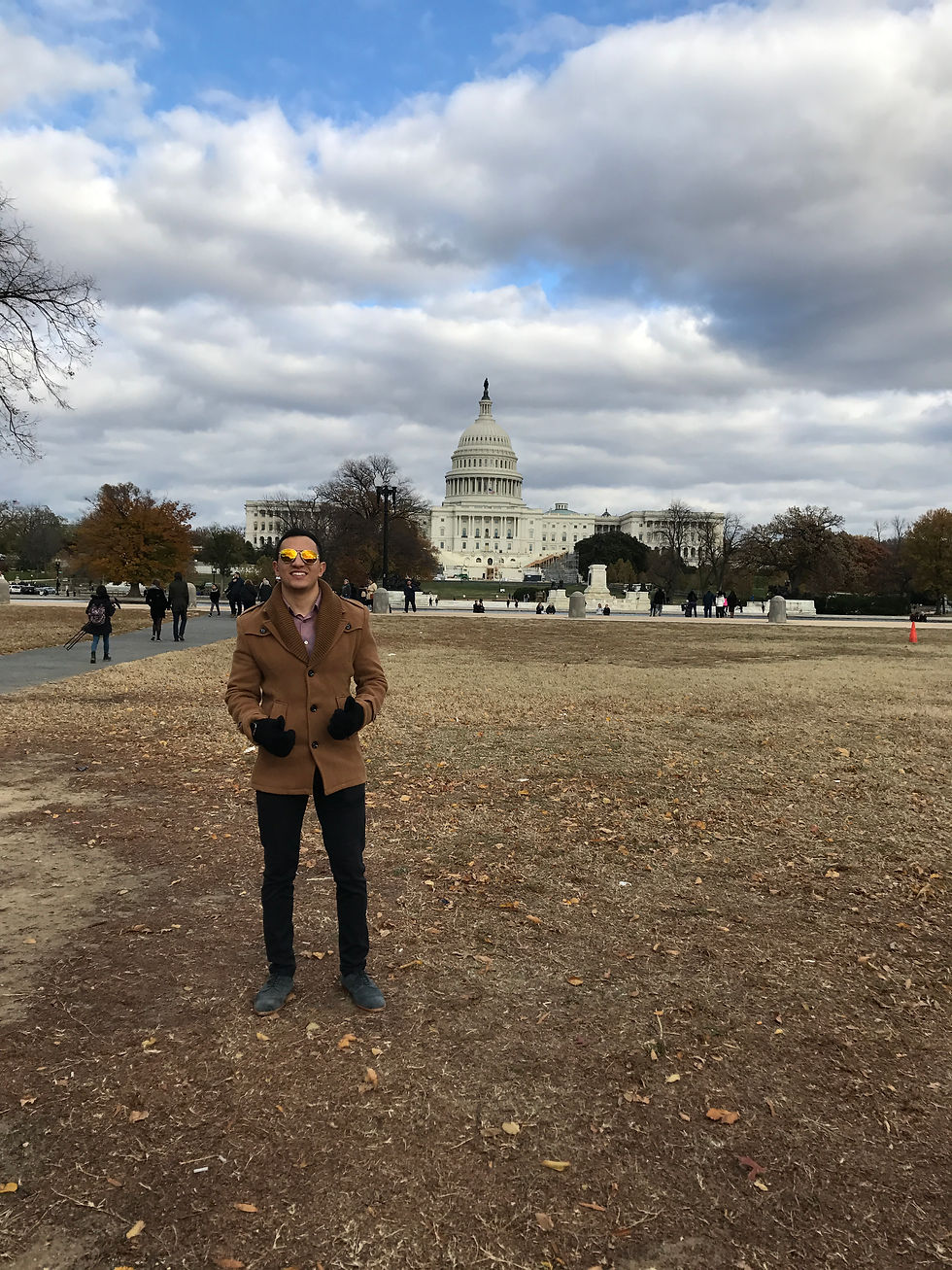Issam Kaisse, Nielsen: Filling a need for Arab employees by starting a new affinity group
- Marie G-G
- Aug 16, 2022
- 4 min read

Issam Kaisse is a first-generation immigrant to the United States from Morocco, and he speaks five languages. Since he’d grown up living all over the world, he thought he would adapt to life here easily.
“I quickly realized when I came to the U.S. that it was different being an Arab immigrant. It was difficult to adapt at first…I could not relate to any ethnic group.”

His first shock in college was being asked to fill out his ethnicity on a form. He didn’t fit into any of the categories.
“I had to Google it and apparently I had to check the white box. I was like, all right…I don't think I'm white, but I will do it for the Census.”
He also discovered that many Americans knew very little about Morocco.
“You could see from their face they were not sure where it was. They often confused it with Monaco. I would say I'm from Morocco and they would say, oh, Monaco, I love that city. I would say, no, I'm from Morocco, the city is Rabat and the country is Morocco.”
When he started his first position at Nielsen seven years ago, he joined several affinity groups, which Nielsen calls “business resource groups” (BRGs). Unfortunately, none of them was the right fit. (BRGs are made up of people who identify with a specific community such as ethnicity and gender.)
He approached Nielsen’s Diversity, Equity, and Inclusion team and proposed a new group for employees of Arab descent called Marhaba (Arabic for “hello”).
At the first meeting, Issam talked about Ramadan and how Muslim people celebrate this month-long period. He was careful to note that just because you’re Arab doesn’t necessarily mean you’re Muslim. Issam explained that at least 400 million people of Arab descent live in 22 countries.
“Most Arabs are Muslim, but most Muslims are not Arabs. And if you are talking about Muslims, the count goes from 22 to 55 countries.”
Issam is grateful to be working for Nielsen because it’s a diverse company that encourages employees to express their opinions and suggest ideas. However, he notes the lack of Arab representation on the management team, as with most companies.
“You know how sometimes you join a company…you have someone on the management team that's from your ethnicity. That's an opportunity to connect with that person and say, ‘how can I improve myself? How can I be great? How can I make my name known in the company and be someone who's impactful to the organization?’ But for me that was not really available.”
Issam emphasizes that we don’t just need companies that value diversity; we also need employees willing to play their part.
“If you want to be part of a cycle and want to be part of the change, you have to speak up. And that's why I reached out to the diversity and inclusion team and said, ‘let's make this happen.’”
Marhaba consists of employees of Arab descent, but also others who are not. Issam enjoys educating people about Arab countries and culture, so that’s a big part of the BRG.
“Morocco is the first country that recognized U.S. independence. The tallest building is in Dubai. The lowest point on Earth is in the Dead Sea in Jordan. The use of the numeric system that we have in the English language is from Arabic history.”
After sharing about the purpose and rituals of Ramadan on his kickoff call, Issam noticed a change.
“People started asking me, ‘how's Ramadan going?’ or ‘Are you getting ready for Eid?’ And that was for me the happiest moment, because it made me realize I made an impact within the organization…and that's the purpose. The end goal is educate and share knowledge and provide the real meaning of being Arab.”
He also discovered other employees in the company who are also of Arab descent and even from Morocco.

Very few other companies have affinity groups for people of Arab descent. I asked him what advice he has for other companies who want to set up similar groups.
“Build the idea. Challenge it. Make sure you can answer questions…propose the idea to family and friends who aren’t from the same cultural group…”
He advises that company leaders listen to their employees, give them a way to express their thoughts and ideas, and look for ways to help them thrive and grow.
Issam is now an accounting manager overseeing staff in more than 50 countries around the world. He’s pursuing an MBA in accounting in his spare time. He’d like to thank his coworkers for supporting him with Marhaba.
I alternate the Companies That Care podcast with my original podcast, Finding Fertile Ground, which shares personal stories of grit and resilience. On both my podcasts I strive to highlight voices from historically excluded populations, people who don't always get a platform.
I help professional services companies avoid BORING by making communications painless and boosting employee engagement, productivity, and brand recognition. I turn lackluster, jargon-filled, or technical prose into clear dynamic narrative. Look us up on fertilegroundcommunications.com.
As a podcaster for justice, I stand with my sisters from the Women of Color Podcasters Community. We are podcasters united to condemn the tragic murders of George Floyd and Breonna Taylor and many others at the hands of police.
Fertile Ground Communications LLC is a certified women-owned business enterprise, disadvantaged business enterprise, and emerging small business.

Comments